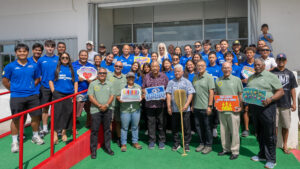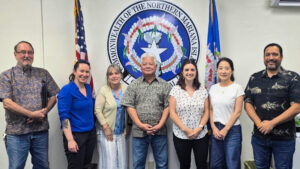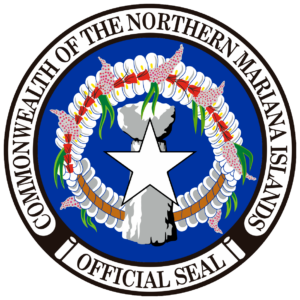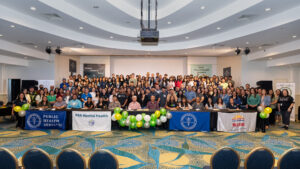Thursday, April 30, 2020 | 8:00 a.m. (ChST)
Watch the full roundtable discussion at https://youtu.be/-vKeJ08ySDE
Chairman Grijalva, Vice Chairman Kilili, and distinguished Committee members, my name is Esther Muna. I am the CEO of the Commonwealth Healthcare Corporation, or CHCC, in the Commonwealth of the Northern Mariana Islands. Last May, I gave testimony to this committee under very different circumstances. I presented to you the powerful, positive impact of equitable Medicaid funding on our health care system. Last December, the federal government took us to task by granting two more years of equitable Medicaid funding for the territories, but only a couple of months later, the CHCC was introduced to its greatest challenge yet: the coronavirus.
In January, the CHCC began messaging coronavirus prevention in our community and screening patients for symptoms. In early February, we sent our first specimen for coronavirus testing nearly 8,000 miles away to Atlanta. It took 10 days to receive the negative result. Over the next month, we took steps to reduce traffic on our campus, incorporated coronavirus screening into our regular disease surveillance at the Saipan International Airport, and on March 16th, we activated our Area Operations Command, diverting nearly a third of our staff to the response. On March 28th, the CNMI announced its first two positive cases, with 12 more cases confirmed since then.
In the past 40 days, with support from our Governor, his taskforce, and CHCC staff, we have screened more than 500 walk-in patients for coronavirus symptoms, screened more than 1500 passengers at the airport, identified and interviewed more than 215 contacts of positive cases, responded to more than 700 phone calls about the coronavirus, overseen the care and release of more than 250 individuals from quarantine and isolation, had more than 300 specimens tested, including more than 200 at our own lab, and conducted more than 90 teleconsults with our patients. Three days ago, the CNMI began conducting community-based testing, and have collected samples of more than 400 people.
Of 14 cases confirmed, two have died, and the other 12 have recovered. It has been nearly two weeks since our most recent case was identified.
We have been vigilant. We have been effective. But we are still vulnerable.
The CNMI is uniquely susceptible to upheaval should we experience a larger outbreak. The virus undercuts the power of our social capital – built on family gatherings, multi-generational households, and close relationships with our man’amko. It lays bare our non-communicable disease crisis, and threatens to tear away the gains we have made to our health care system. It has evaporated our livelihood, throwing our tourism-based economy into swift and acrimonious decline. The CNMI government is shut-down, and is projecting a 65 million dollar deficit. The island schools closed, many public and private employees have been furloughed, skyrocketing unemployment, the retiree pensions cut 25%, rendering health care unaffordable for so many families.
The CHCC’s success thus far is the result of a herculean effort, requiring nearly 18,000 staff hours and over 7 million dollars. Thanks to support from the Governor and the COVID-19 Taskforce and the federal partnership with HHS and DoD through FEMA, and further supported by the CARES Act, we have been able to secure additional ventilators, PPE, laboratory equipment, testing reagents, established a temporary 40-bed care site, and a longer term alternate care site. We have received help to assess our surge staffing needs and develop a territorial action plan. We can now test for the coronavirus on-island – an ability that felt far from our reach just one month ago. This assistance has been core to our success, but we need continued federal assistance to put an end to this war.
We at the CHCC must fulfill our regular obligations while balancing the coronavirus response, and forging an ambiguous future to prepare for the worst. Our strengths and our weaknesses are brought into focus while the disruption has sparked innovation and illuminated opportunities for improvement.
We are in ample supply of vision and determination, but we need your help to establish a reliable, equitable supply chain for PPE and testing reagents. We need funding to keep our staff, including our robust contact tracing team, at work. We need support for the long-overdue expansion and modernization of our 35-year old hospital.
Along with our Governor, his cabinet and taskforce, and Congressman Sablan, we are working hard to safely bring the rest of the CNMI back to work. Help us get there.
Thank you, Si Yu’us Ma’ase and Olomwaay.
# # #





